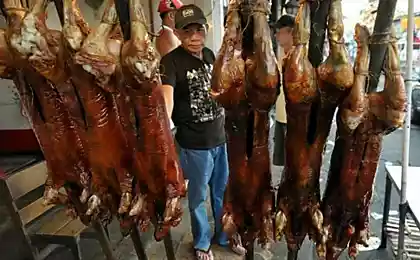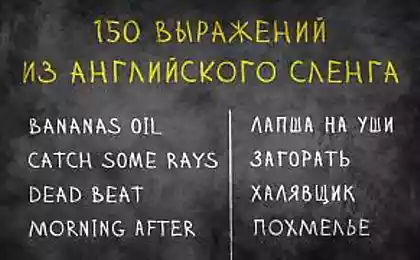2640
In the Philippines, a festival of roasted pigs
In the province of Quezon in the Philippines passed the Fair roasted pigs. The event covered with a crust of animal carcasses
dress up in different costumes, and then the participants of the festival carries them through the streets on their shoulders.
On the eve of the fair across the province prepare roasted piglet. To do this, the carcasses of pigs are marinated in a mixture of soy sauce, vinegar and spices.
Then stuffed pigs tamarind (legume), pandan leaves and seasoning mixes.
After that piglets baked on coals.
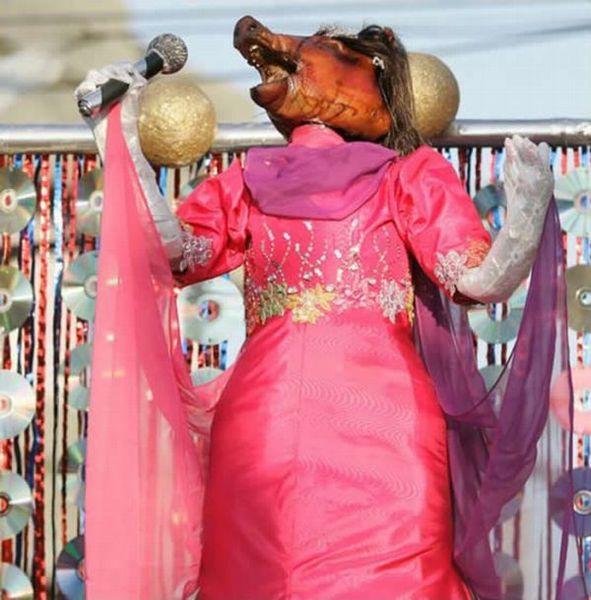
A portion of the pigs is transported by city for sale during the fair, and the other dressed up for the festive procession. At the festival, which is called "Parade Lechón, Aragon" (the word "Lechón, Aragon" and called roasted piglet), you can see the pigs in their wedding clothes, concert satin dress in traditional Filipino attire and other costumes. Roast suckling pigs are a traditional and very popular dish in the Philippines. The word "Lechón, Aragon", the name used for food, derived from the Spanish word «leche» - «milk." This means that for the preparation of carcasses taken Lechón, Aragon piglets.
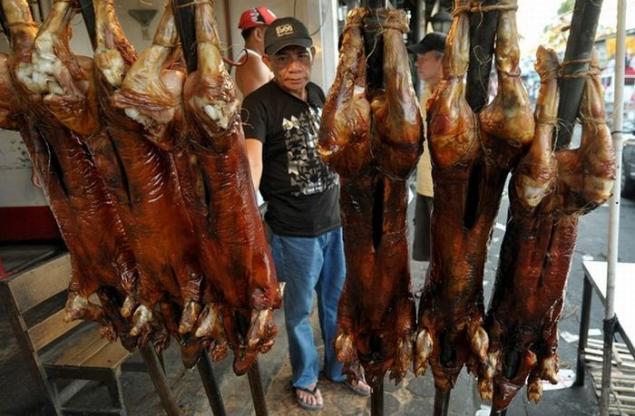
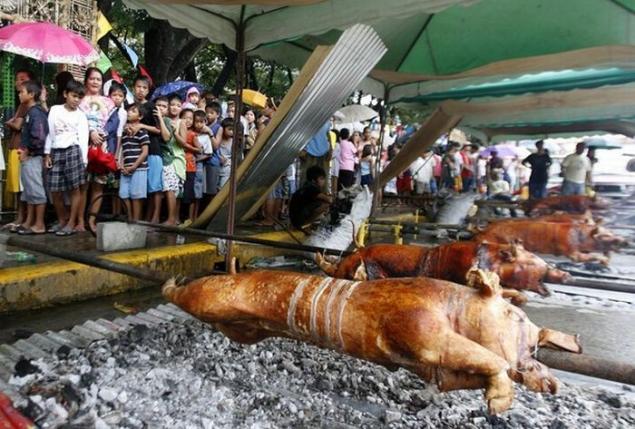
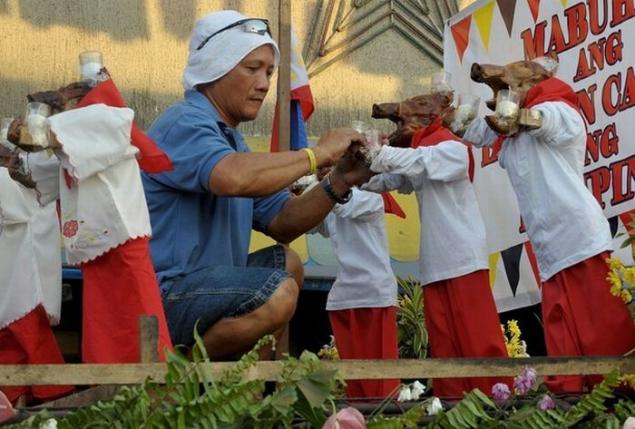
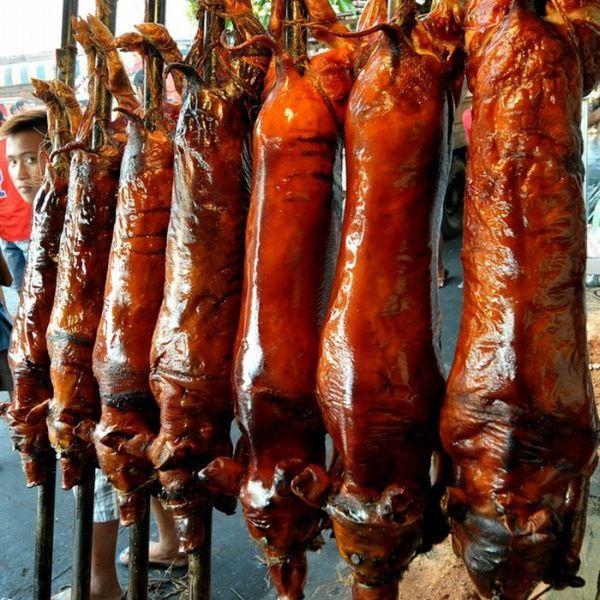
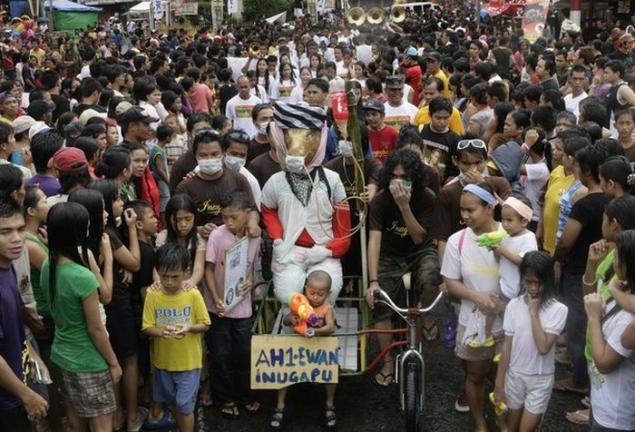
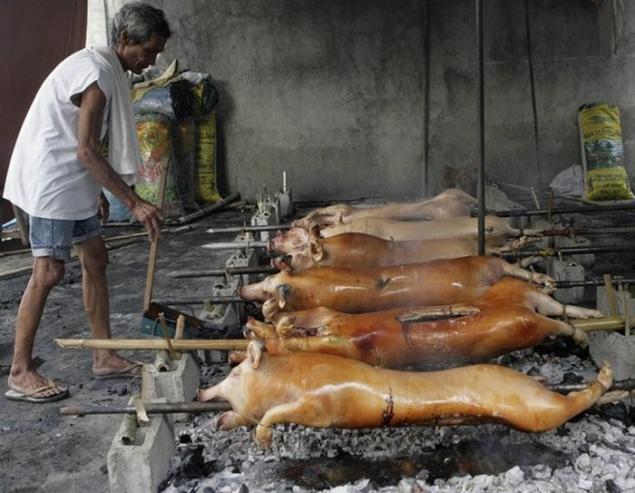

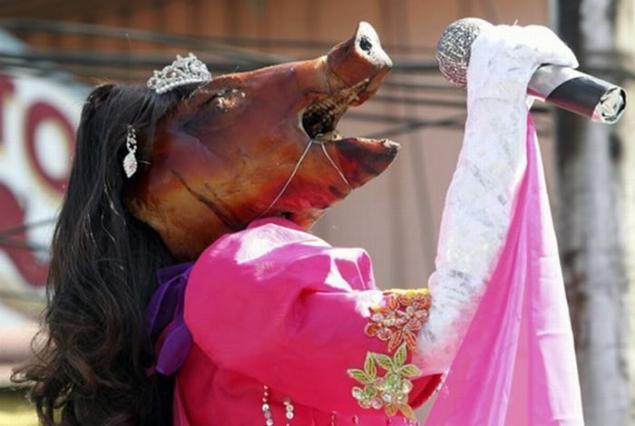
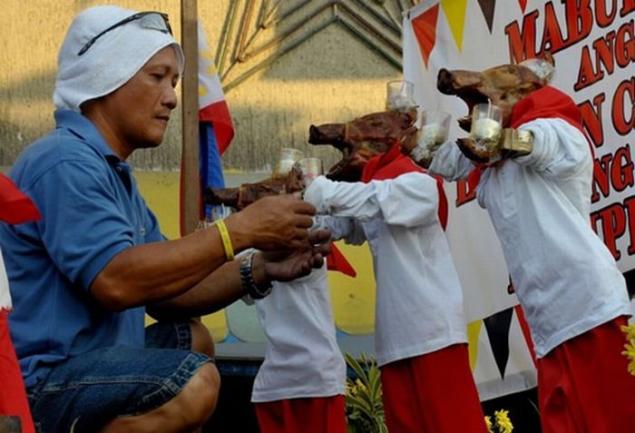
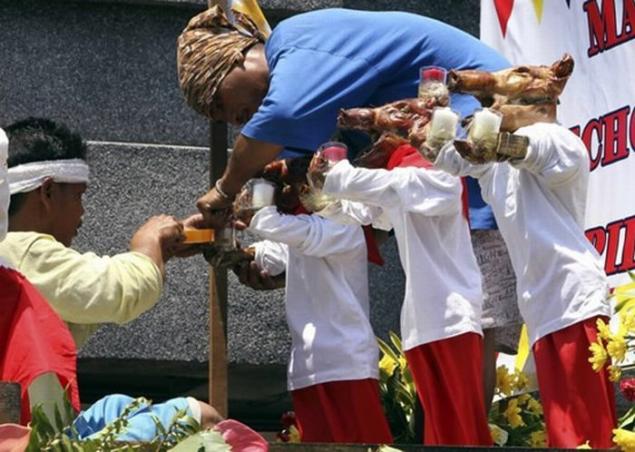
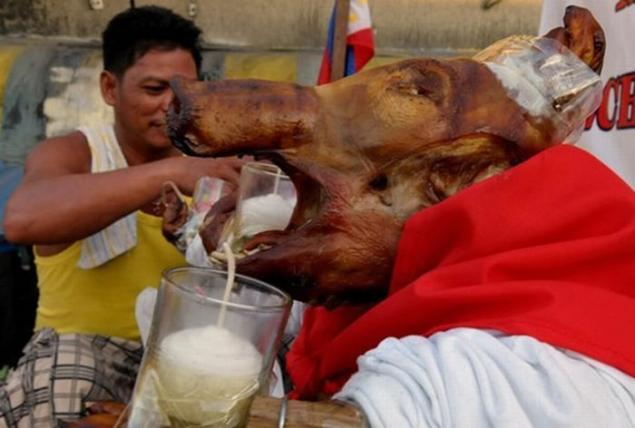
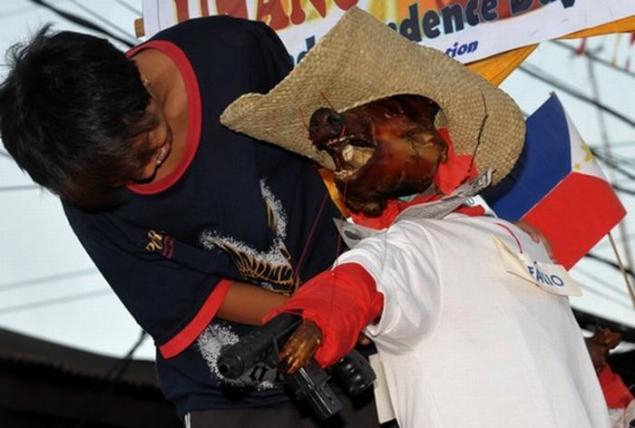
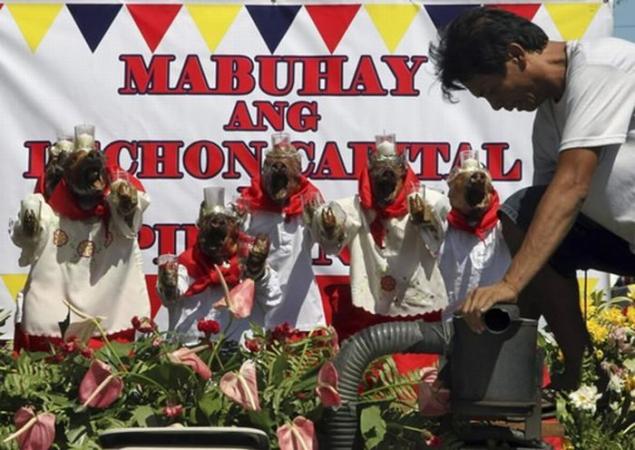

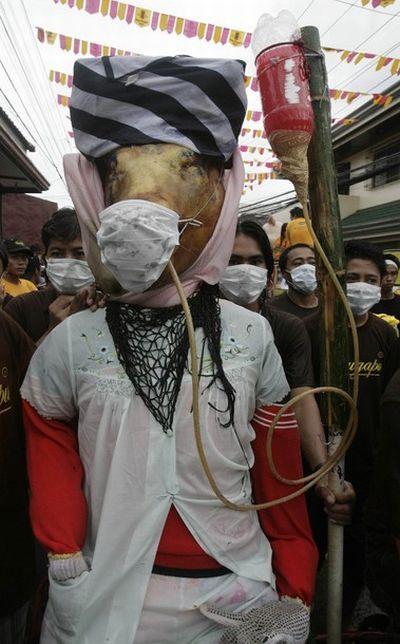

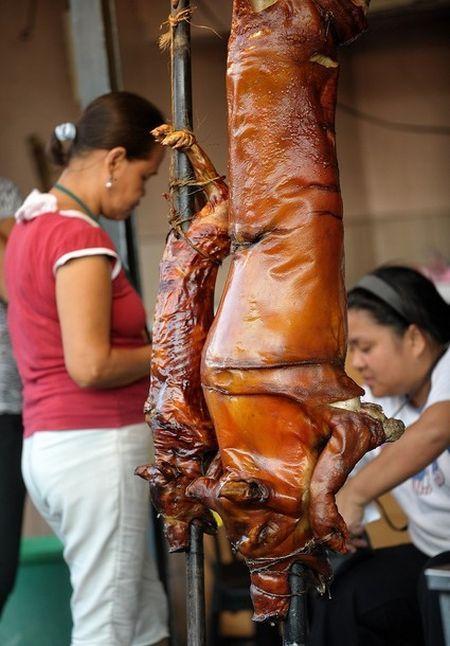
dress up in different costumes, and then the participants of the festival carries them through the streets on their shoulders.
On the eve of the fair across the province prepare roasted piglet. To do this, the carcasses of pigs are marinated in a mixture of soy sauce, vinegar and spices.
Then stuffed pigs tamarind (legume), pandan leaves and seasoning mixes.
After that piglets baked on coals.

A portion of the pigs is transported by city for sale during the fair, and the other dressed up for the festive procession. At the festival, which is called "Parade Lechón, Aragon" (the word "Lechón, Aragon" and called roasted piglet), you can see the pigs in their wedding clothes, concert satin dress in traditional Filipino attire and other costumes. Roast suckling pigs are a traditional and very popular dish in the Philippines. The word "Lechón, Aragon", the name used for food, derived from the Spanish word «leche» - «milk." This means that for the preparation of carcasses taken Lechón, Aragon piglets.




































